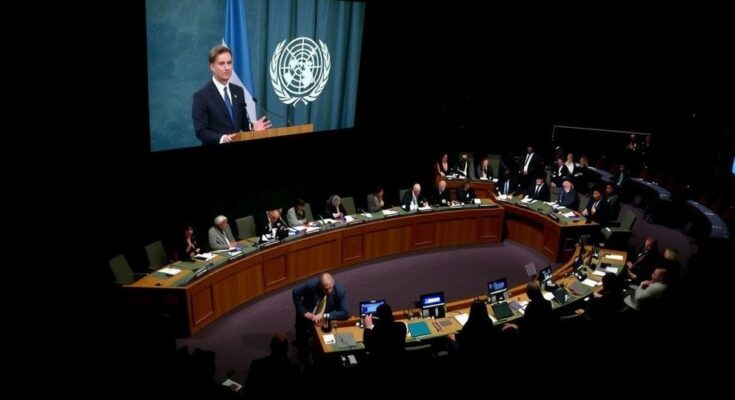A finance deal at COP29 to assist less-developed countries with climate challenges, promising $300 billion annually by 2035, has been criticized as inadequate compared to the requested $1.3 trillion. Critics, including the African Group and an Indian representative, called the pledge “too little, too late.” Despite the criticism, some leaders, including President Biden, view the agreement as a step forward in climate action.
At the COP29 summit held in Azerbaijan, a finance deal was established aimed at assisting less-developed nations in combating climate change. The agreement, which concluded after extensive negotiations lasting over 30 hours, stipulates that wealthier nations will contribute $300 billion annually by the year 2035. However, this pledge has faced significant criticism. Representatives from poorer nations asserted that the amount is vastly insufficient compared to their request for $1.3 trillion needed to effectively address climate-related challenges. The African Group of Negotiators labeled the deal as “too little, too late,” while an Indian delegate dismissed the sum as “a paltry sum.” Despite this critique, some global leaders believe the agreement represents a progression towards effective climate action. U.S. President Joe Biden remarked that, although much work remains to be accomplished, this outcome marks a significant advance toward climate objectives. Furthermore, EU Climate Commissioner Wopke Hoekstra highlighted the deal as “an ambitious and realistic goal and an increased contributor base.” UN Secretary-General Antonio Guterres expressed a desire for a more ambitious agreement, noting that while the arrangement provides a foundation for future improvements, it does not fully meet the pressing climate challenge.
The COP negotiations are annual United Nations climate conferences that aim to bring together nations to discuss and implement strategies for combating climate change. The financial commitments made during these summits are critical for developing countries, which often face the brunt of climate impacts despite contributing least to the problem. The disparities in financial pledges—often falling short of developing nations’ requests—have been a consistent point of contention, reflecting the broader tensions in international climate agreements regarding responsibility and equity between wealthier and poorer nations.
In summary, while the COP29 finance agreement signifies a notable step towards addressing climate finance for less-developed countries, it has drawn considerable backlash for its inadequacy. The $300 billion annual contribution is deemed insufficient against the requested $1.3 trillion, raising concerns about the commitment of wealthier nations to meet the urgent climate crisis. Critics underscore the ongoing challenge of secure, substantial funding to support vulnerable nations in their climate adaptation and mitigation efforts.
Original Source: en.armradio.am




